School of Social Work News
Pages
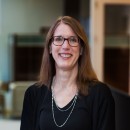 Kristin Seefeldt Discusses Food Insecurity with WXYZ Detroit
Kristin Seefeldt Discusses Food Insecurity with WXYZ DetroitAssociate Professor Kristin Seefeldt spoke to WXYZ Detroit about the struggles families face due to food insecurity and how the new SNAP benefit can help. Beginning October 1, the program once known as Food Stamps will be receiving the single largest increase in the program's 46-year history.
- September 2, 2021
- Learn more »
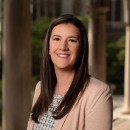 Lindsay Bornheimer and Jamie Abelson on Developing Programs to Support Mental Health in Young Adults
Lindsay Bornheimer and Jamie Abelson on Developing Programs to Support Mental Health in Young AdultsAssistant Professor Lindsay Bornheimer and Curtis Center Program Manager Jamie Abelson are on the board of Garrett's Space, which was founded by Ann Arbor residents Julie and Scott Halpert after their son Garrett died from suicide at age 23 in 2017. Bornheimer and Abelson helped the new non-profit develop programs to provide holistic mental health programming for young adults struggling with mental health issues. "Adding a layer of support, positivity and tools that people can engage with can sometimes be more helpful than just medication or just traditional therapy," said Bornheimer.
"Members of our program committee were trying to think: What can we put in place that would help a young person who has been in the hospital? How can we help them transition to feeling more adequate?" recalls Abelson. She notes that the development of their approach took a year. "We wanted to make sure we had it right, because you don't take risks with this population."
- September 2, 2021
- Learn more »
 William Elliott calls for a New Approach in Considering the Cost of College
William Elliott calls for a New Approach in Considering the Cost of CollegeProfessor William Elliott spoke with WalletHub about college affordability and student loan debt. He calls for a new approach in how we think about the cost of higher education. “I want to frame the question more like, should students and their parents have to think mostly about the return on investment when picking a college? It leads to inequity,” said Elliott. “Kids who are forced to rely on debt must make decisions not based on their ability (what they have done in school and what they can do) or what is best in the long run for their career but on what they can afford. This is not an education system designed to be the great equalizer in society, instead, it is part of a system that places some people at the top and others at the bottom.
- August 31, 2021
- Learn more »
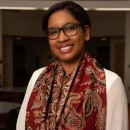 Jaclynn Hawkins is the New Associate Director of the Curtis Center
Jaclynn Hawkins is the New Associate Director of the Curtis CenterAssistant Professor Jaclynn Hawkins has been appointed as the new Associate Director of the Vivian A. and James L. Curtis Center for Health Equity Research and Training, where she is a Signature Program faculty affiliate. "I was the recipient of the Vivian A. and James L. Curtis Endowed Scholarship as a PhD student which made a huge difference in my life. I'm thrilled to be able to give back through this position in the Curtis Center for Health Equity,” says Hawkins. “I am excited to help make our center a leader in health equity research, training and community outreach. We have many exciting things on the horizon and with a strong team of staff, students and faculty, the possibilities are endless." The Curtis Center team are thought leaders, scientists, community organizers, practitioners and educators dedicated to cutting-edge research, education, training and community outreach. Since its establishment in 2008, the center has been a catalyst for social change in underserved communities.
- August 25, 2021
- Learn more »
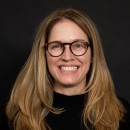 Shawna Lee Receives the Diversity and Inclusion in Men in Families Research Article Award
Shawna Lee Receives the Diversity and Inclusion in Men in Families Research Article AwardAssociate Professor Shawna Lee and Joyce Lee, PhD ‘21, are coauthors of “Longitudinal relations between coparenting and father engagement in low-income residential and nonresidential father families”, published in the Journal of Family Psychology. Their paper was awarded the Diversity and Inclusion in Men in Families Research Article Award from the National Council on Family Relations and was recognized for its contribution to advancing the science on the role of men in families.
- August 17, 2021
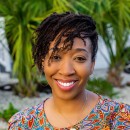 YBMen Launches in Australia
YBMen Launches in AustraliaProfessor Daphne Watkins’ YBMen Project is being launched in Australia. The Freemasons Centre for Male Health & Wellbeing will use Indigenous leadership and co-design processes to adapt and contextualize the program to meet the needs of young Indigenous males across Australia. Originally developed for young Black college men in the U.S., YBMen provides social and educational support and connectedness via social media platforms such as Facebook and Instagram.
“For the past seven years, the YBMen Project has had success with Black men and boys in the United States, and we look forward to seeing what it can do for Aboriginal males in the Northern Territory,” said Watkins. “With such strong support, resources and partnerships in place, we are confident we will see improved mental health, more progressive definitions of manhood and increased social support among Aboriginal males in Australia now, and in the years to come."
- August 17, 2021
- Learn more »
- MSW Student Stacey Stevens Awarded Anti-Racism Grant to Support Detroit’s Zone 8
MSW Student Stacey Stevens has received a summer research grant from U-M’s Anti-Racism Collaborative for her community-based research project, 48208 Lives. Stevens created the project in partnership with Yusef Bunchy Shakur, MSW ‘19, who is the director of the Mama Akua Community House in Detroit, Zone 8, and Pedro Coracides, an MSW student at Wayne State University.
The project focuses on Zone 8, a predominantly Black neighborhood in Detroit, which takes its name from its zip code. Zone 8 experiences many of the inequalities that ravaged all of Detroit in the past decades — unemployment, addiction, persistent poverty, lack of affordable housing — in hyper-focused ways. The high percentage of both empty apartments and rental properties make it difficult to foster a sense of community. Despite these many challenges, residents have fostered a sense of community out of survival. Many critical institutions, including local schools and grocery stores, have closed, which has made this community more vulnerable socially, politically and economically.
“This is a neighborhood that is under constant attack from gentrification from outsiders,” said Stevens. “It is only now with its proximity to Midtown and Downtown Detroit, that this neighborhood is being ‘valued’ and recolonized.”
According to project documentation, 48208 Lives seeks to “connect, develop and nurture emergent leadership from Zone 8 to create a racially and socially just vision for a revitalized Detroit without displacement or continued disinvestment.” To do this, the project will develop an asset map, marking all the human resources available to residents. “We are hopeful that this project will lay a foundation for neighborhood residents to support their visions for a vibrant community,” said Stevens.
“One of the things I have learned thus far in our planning is how there is no one-size-fits-all approach to doing this work. I live about two miles away from the neighborhood we are working in. There is such a drastic difference in how my community looks and the resources most folks in my community have compared to Zone 8,” said Coracides. “I think that is the one thing I hope to learn through this work: what does it look like to replicate this work in different communities around Metro Detroit in light of the unique needs and resources available to each community?”
“The support will allow us to navigate some of the challenges on the ground and to meet our goal by connecting us with residents and positioning us to amplify their voices,” said Shakur. “As a graduate of the School of Social Work, this opportunity to work with like-valued people is inspiring. Developing a research framework that is resident-driven and working professionally in a team capacity doesn’t necessarily happen post graduation.”
- August 16, 2021
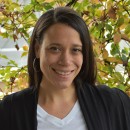 Irene Routté Awarded a 2021 Rackham Public Scholarship Grant
Irene Routté Awarded a 2021 Rackham Public Scholarship GrantJoint PhD student Irene Routté has been awarded a 2021 Rackham Public Scholarship Grant for her project “Grand Rapids Congolese Refugee Youth Council and Leadership Program.” In partnership with Michigan Banyamulenge Community (MBC), a refugee-run organization in Grand Rapids, Routté will help develop and launch a community-driven youth council and leadership development program for Congolese refugee youths. This project will help MBC extend its organizational capacity to serve the roughly 8,000 Congolese refugees in the Grand Rapids area and create a space of support and empowerment for Congolese and other refugee youth.
The Rackham Program in Public Scholarship supports mutually beneficial projects created between Rackham students and community partners.
- August 10, 2021
- Learn more »
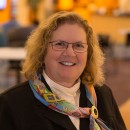 Mary Ruffolo Book Published on Digital Portfolios for Social Work Students
Mary Ruffolo Book Published on Digital Portfolios for Social Work StudentsProfessor Mary Ruffolo is co-author of “Digital Portfolio Construction: A Guide for Showcasing Social Work Skills.” The book guides students through the process of compiling a digital portfolio — a collection of artifacts that demonstrates the knowledge, skills and competencies they have mastered throughout their social work program.
- August 9, 2021
- Learn more »
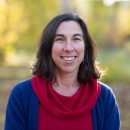 Lisa Wexler Discusses How Research on Gun Violence Can Save Lives
Lisa Wexler Discusses How Research on Gun Violence Can Save LivesProfessor Lisa Wexler spoke with the podcast Nature on the importance of research into gun violence. “I think it can save lives. The impact for this sort of research can be nearly immediate,” she said. Wexler studies how communities in Alaska can reduce suicide rates in Indigenous youth by promoting gun safety measures. “If you can make it ten minutes harder to get a lethal means - in this case a loaded gun - you can save lives because a lot of suicides are impulsive, particularly youth suicides.”
- July 27, 2021
- Learn more »